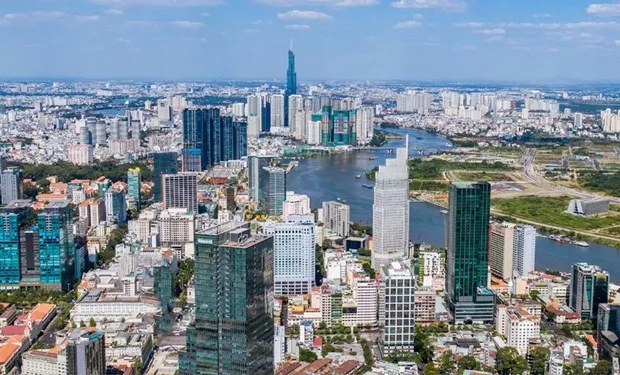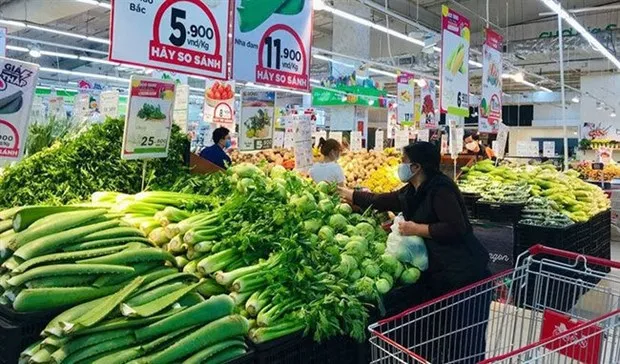
Vietnam’s economic conditions continued to improve, with both industrial production and retail sales registered a third month of growth, said World Bank (WB) in the December edition of its Vietnam Macro Monitoring.
Merchandise exports hit a record high of 31.9 billion USD, helping maintain a second consecutive month of trade surplus while FDI commitment recovered after a brief dip in October, according to the report.
The number of newly established formal firms increased by 45 percent month-on-month in November, a second month of increase since May. Firm exit numbers also increased, but at a slower pace than firm entry.
More businesses resumed than suspended operations, it said, adding that the higher net entry could be attributed to improved economic conditions.
 The Consumer Price Index (CPI) increased by 0.3 percent month-on-month in November. (Photo: vneconomy.vn)
The Consumer Price Index (CPI) increased by 0.3 percent month-on-month in November. (Photo: vneconomy.vn) Inflation ticked up due to fuel price hikes, recovering non-food domestic demand and rising logistic costs while credit growth remained stable, providing amble liquidity to support the economy recovery. After two months of decrease, the Consumer Price Index (CPI) increased by 0.3 percent month-on-month in November.
Food prices continued to trend down, falling by 0.2 percent month-on-month thanks to well-maintained food supply chains.
Compared to a year ago, the CPI rose by 2.1 percent year-on-year, slightly higher than in October, but well below the 4.0 percent target set by the State Bank of Vietnam.
The government continued its contractionary fiscal stance as the budget balance posted another month of surplus, driven by strong revenue collection, the report noted.
The policy of “living with COVID-19” will involve continued vigilance and fast action by the authorities, both in vaccination and in social distancing, testing, and quarantining. There is also clear need for fiscal policy support to boost private demand and help the domestic economy recover. Providing financial assistance to impacted workers and households would be an essential avenue to achieve this objective, according to the report.
Given the available fiscal space, and difficulties registered in implementing the budget in 2021, another policy option for consideration is a reduction in the value-added taxes for 2022 to support private consumption.




















